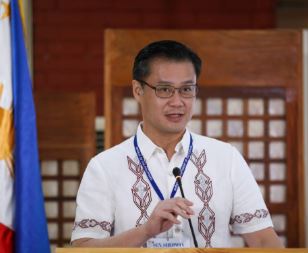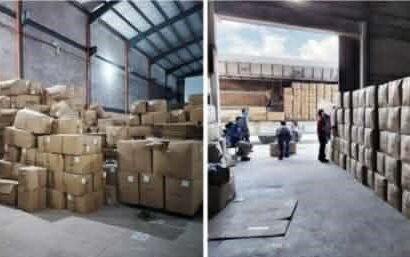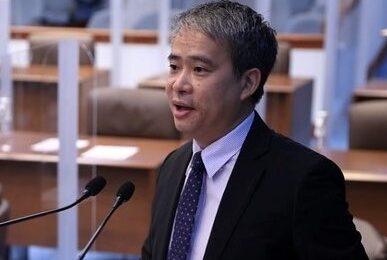The Technical Education and Skills Development Authority (TESDA) has the right skills and personnel, and a wealth of experience to mobilize and organize communities hit by Typhoon Odette over the weekend to help them rebuild their own homes and enable them to be certified to earn a means of living as well, according to Senator Joel Villanueva.
Villanueva, former TESDA director general, said the tech-voc agency has existing programs that can be tweaked to suit the needs of typhoon victims, such as the ones that were implemented years before where trainers were deployed to equip residents with basic construction skills which they can use to rebuild their houses and become employable.
“Hindi lang po magagamit ng ating mga kababayan ang mga skills na basic carpentry at house wiring sa kanilang pagkukumpuni o paggawa ng kani-kanilang mga tahanan. Mapapakinabangan rin po nila bilang dagdag-karanasan na magiging daan sa trabaho,” said Villanueva, chair of the Senate labor committee.
“Beneficiaries of the program could undergo a competency assessment test which leads to a national certification II. They can be hired in construction projects or even be self-employed,” he continued. “With more funds and a wealth of experience, we’re certain that TESDA would be able to be a gamechanger in the government response to the needs of our typhoon victims. We look forward to seeing TESDA helping our kababayans pick up with their lives,” Villanueva said.
The senator explained that the training-cum-production (TCP) method provides practical skills and experience for trainees to use the knowledge they gain. On top of the training, beneficiaries also are provided an allowance to cover a part of their basic needs as they get back on their feet.
Under Villanueva’s helm, TESDA implemented a training-cum-production program in regions which were hit hardest by Typhoon Pablo in 2012.
The program covered various construction related skills training such as carpentry, masonry, electrical wiring, among others. When Yolanda struck in 2013, TESDA mounted the “Pandayan Project” where residents in hardest-hit provinces were given a crash course on basic principles of carpentry and electrical repairs, which includes a hands-on application of the practical skills.
The trainings adopted a community-based approach to allow community members to band together in building structures in their neighborhoods through bayanihan, the lawmaker recounted.
Aside from the training program, participants were provided tool kits and materials they needed. A total of 3,803 houses in eight regions sustained damage, while the number of affected families stood at 276,522, according to the Dec. 20 report of the National Disaster Risk Reduction and Management Council.
The lawmaker also urged TESDA to look into jumpstarting the production of solar night lights, which can be distributed to communities who remain without a stable supply of electricity.
The lawmaker said TESDA’s Solar Night Light Assembly should be able to help beneficiaries light up their homes in the meantime while power restoration efforts continue.
The Solar Night Light Assembly “covers knowledge and skills needed to assemble, test, and troubleshoot solar night lamps.
This material can also be used to deepen one’s understanding of the process and the system used for turning solar energy into consumable energy using solar-powered generation technology.” Villanueva likewise asked different government agencies to pitch in to the bayanihan effort to help communities rebuild their houses by sharing construction materials, among other needs.





